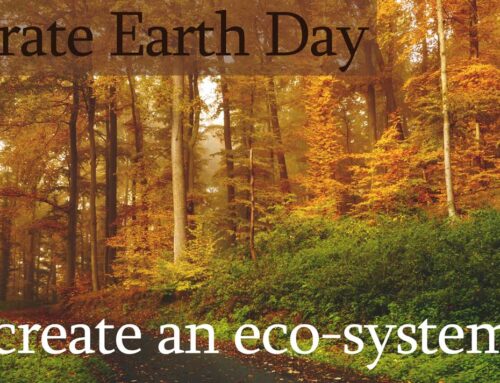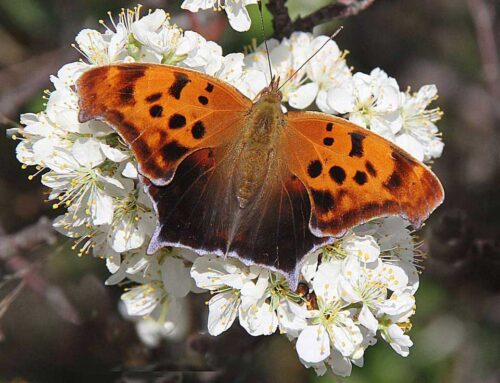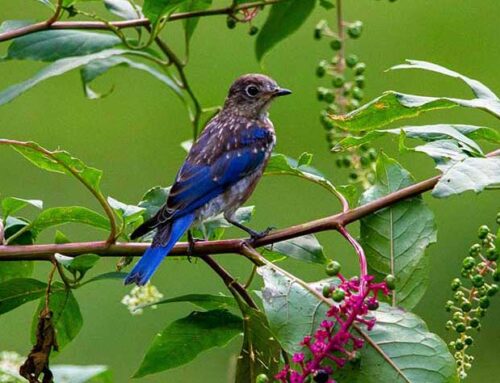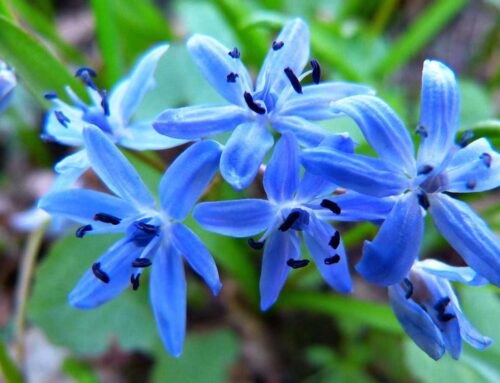Celebrate and Practice Earth Day
It’s The Only Home We Have
Sustainable Landscaping | Create An Eco-System
“Sustainable Landscaping is like cooking. It is tempting to cook only with the goal of achieving great taste, with no thought of healthy eating, but that often results in tasty concoctions so full of fat, sugar, and salt that they are deadly in the long run. Similarly, it is tempting to landscape only for beauty, without regard to the many ecological roles our landscapes must perform. All too often, such narrow landscaping goals result in a landscape so low in ecological function that it drains the vitality from the surrounding ecosystem”
Earth Day is an annual celebration that honors the achievements of the environmental movement and raises awareness of the need to protect Earths natural resources for future generations. The first Earth Day was held April 22, 1970. You can make choices that make a difference.
By using sustainable landscaping practices, you can still design an attractive landscape that is functional, low maintenance, cost efficient and environmentally friendly. A sustainable landscape finds balance with the local climate; reduces inputs such as chemical fertilizers, herbicides, fungicides and pesticides; and promotes energy and water management for a healthier environment that can help improve both air and water quality.
Sustainable landscaping is an umbrella term that encompasses a number of landscape design, construction, implementation, and management practices utilized for both residential and commercial landscapes. Essentially, it is a strategy for making full use of the environment to provide natural key elements that a healthy landscape requires. As part of sustainable development, it preserves limited resources, reducing waste, and preventing air, water and soil pollution. Growing the right plants in the right places; utilizing compost and mulch; employing natural fertilization, weed and pest management; and implementing effective moisture control are all components of sustainable landscaping.
How You Can Help Save The Environment
Plant A Native Tree
Trees help purify the air and give wildlife a home, and planting them isn’t as difficult as you might think. The Arbor Day Foundation (a 501(c)(3) nonprofit conservation and education organization) has an excellent online video with instructions on the proper methods to utilize when planting bare root trees as well as an offer of ten (10) free bare root trees when you become a member with a $10.00 one time donation. The trees are delivered with natural bare roots which have been dipped in hydrating gel prior to shipment to keep the roots moist and healthy. As their abundant, fibrous roots aren’t confined by a container, bare-root trees get off to a more vigorous start compared to containerized roots which typically need more time to adjust to transplanting. Bare-root trees typically surpass the size of larger containerized trees in only a few years.
Implement Natural Pest Control
Pesticides have long been known to be detrimental to both the environment and our health. attracting beneficial insects such as lacewings and praying mantises. Aphids and mites can readily be managed with ladybugs. This is an excellent opportunity to teach children and youth about Conservation Biological Control. What is that you may ask? With the advent of chemical pesticides, the contributions of beneficial insects (those that prey upon or parasitize garden pests) were largely forgotten. However, pesticides alone have not solved the problem of pests—and of course, pesticides have been shown to have widespread, harmful impacts. Conservation biological control (CBC) seeks to integrate beneficial insects back into ecological systems for natural pest control. At Lincoln Landscaping one of the practices that we strongly recommend is our “ninjas in the garden” project, an example of which shows the wonder and joy that our next generation can learn by practicing sustainable landscaping practices.
Use a rain barrel
Conserving rainwater is a great way to make less impact on the earth while growing a greener garden. A rain barrel is also a relatively easy DIY project. As an idiom, pennies from heaven means unexpected good luck or good fortune; indeed, it’s often used to indicate a benefit that is financial in nature. A rain barrel is a system that collects and stores rainwater from the roof, then dispenses it via a spigot or hose. Collecting rain is relatively simple and cheap, and it also sends a strong message about the importance of water conservation. Rain barrels can save an estimated 1,300 gallons of water for homeowners during the peak summer months.
Start a compost pile
Throughout the year we at Lincoln Landscaping promote and utilize compost and our own compost tea within our commercial projects, our playing fields and athletic fields, and within our residential properties with relation to both lawn and gardening and plant growth. We encourage and aid many a client in establishing a home compost pile and the maintenance and upkeep thereof.
Composting takes your kitchen scraps and converts them to nutrient-rich food for your soil. You’ll add less trash to the landfill and make your plants happy. Static piles are aerated by layers of loose material that allow air to pass through the pile, such as wood chips, shredded newspaper, leaves, or even straw. All of these help retain heat within the pile and add to the carbon makeup of the pile. A static pile can produce a high quality and organic compost in three to six months.
The above suggestions are just four of the many principles within the practice of environmentally safe landscaping. Sustainable landscapes reduce inputs that can also save consumers time and money in contrast to traditional landscapes that rely heavily on highly cultivated plants. The focus of sustainable landscaping is the mindful choices of low-input plants, environmentally friendly hardscapes and gardening techniques that maximize the value of your home as well as the environment. At Lincoln Landscaping we thrive on creating eco-systems for residential and commercial clientele. If you are considering undertaking a transformation to green living, give us a call and we’ll be happy to walk the path with you to a better life.
Lincoln Landscaping Inc of Franklin Lakes
“creating eco-systems”
Lincoln Landscaping “The Natural Choice”
Mike Kolenut President & CEO
https://lincolnlandscapinginc.com
(201) 848-9699









